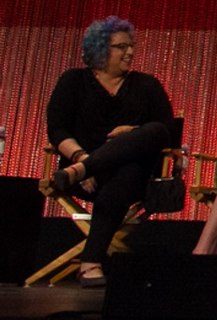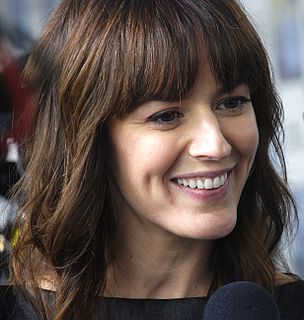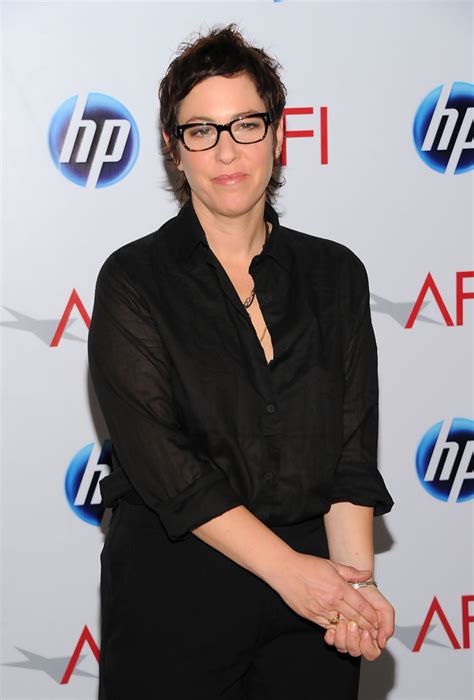A Quote by Noelle Stevenson
It was not until Web comics that I saw stories about women and stories by women and things that were aimed specifically at female readership. It was just kind of this free-for-all that was achieving something amazing with creativity. That was where I got my start.
Related Quotes
We need more female directors, we also need men to step up and identify with female characters and stories about women. We don't want to create a ghetto where women have to do movies about women. To assume stories about women need to be told by a woman isn't necessarily true, just as stories about men don't need a male director.
If you go to a network and say, "I wanna do prison stories about black women and Latino women and old women," you're not gonna make a sale. But, if you've got this blonde girl going to prison, you can get in there, and then you can tell all the stories. I just thought it was a terrific gateway drug into all the things I wanted to get into.
Long before I became a feminist in any explicit way, I had turned from writing love stories about women in which women were losers, and adventure stories about men in which the men were winners, to writing adventure stories about a woman in which the woman won. It was one of the hardest things I ever did in my life.
I don't think that there's a target audience at all. These stories were in circulation. The stories were told by men, told in the marketplace by men, but also behind doors by women, but there's no real record of this. It's likely they were told by women to children in their interior rooms. The story could be a negative story, they could be presented as a, "Watch out! Women will get round you, do things to you, weave you in their toils." It could be buried in it an old cautionary story about women and their wiles.
Here are examples of real women who have done real things: good, bad, and in between. We're expanding not just the definition of the female or feminine hero, but also villains and more complex, nuanced female characters. Too often I hear men say, "I don't know how to write women." Here you go, here are five incredible women you can use to inspire your own stories.
At the beginning of my career, a more senior photographer told me to shoot stories on women and I didn't want to. But I spent two and a half years in India and chose to do stories about women because I was shocked by their treatment. My stories in the Middle East and on the border of Europe and Asia were a response to my time in India. They weren't driven by a feminist idea but when you're moved by women's issues in these countries you can't help becoming a feminist somehow.
I started a writing class, not in service of writing a script or writing anything specific. I've just really been enjoying that, and oddly the group, not by design, but it just happened to be all women, and there were three women who gave birth this fall while we were all in class, and there's just something really great about getting to know these women through their stories and what they're writing about.






































